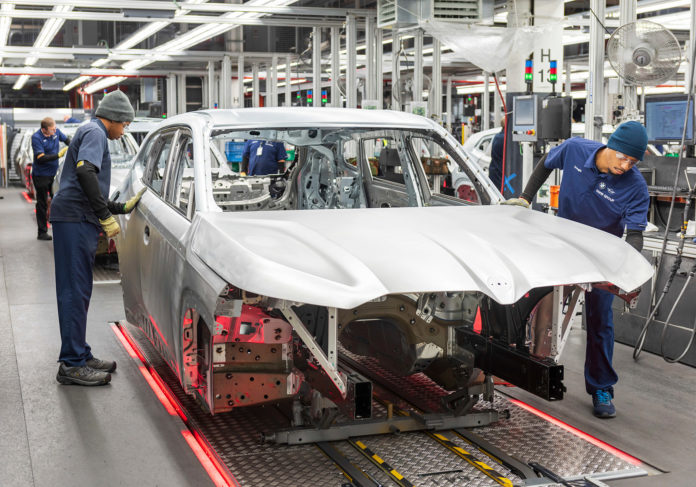
The BMW Group is continuing its efforts to systematically reduce CO2 emissions in the supply chain. A particular focus is on CO2-intensive materials like aluminium, steel and plastics.
The BMW Group therefore intends to source aluminium with significantly reduced CO2 emissions from Rio Tinto’s hydro-powered operations in Canada starting in 2024 and has signed a memorandum of understanding to this effect.
Compared to conventionally manufactured aluminium, this approach can save around 70% of CO2 emissions. The planned supply volumes will be used exclusively in vehicle production at BMW Group Plant Spartanburg in the US state of South Carolina, in body components like the bonnet, for instance.
“We have clear goals for lowering CO2 emissions in the supply chain. By using innovative materials, we can reduce our vehicles’ carbon footprint – even before handing them over to customers. The agreement to supply low-carbon aluminium is based on several pillars: in addition to hydroelectric power and a high percentage of secondary material, we also want to lead the automotive industry by ramping up our use of aluminium with no direct CO2 emissions from the smelting process,” explains Joachim Post, member of the Board of Management of BMW AG responsible for Purchasing and Supplier Network.
The Honourable François-Philippe Champagne, Canada’s Minister of Innovation, Science and Industry, said: “Canada is a global destination of choice for low-carbon investment. This exciting partnership between BMW and Rio Tinto is proof that Canada is well positioned to seize the economic benefits of the clean economy. I am proud to see that low carbon Canadian aluminum will be going into BMW’s vehicles. Canada will continue to enhance our competitive advantages – abundance of critical minerals, skilled labour, clean energy, proximity to markets – to grow our economy and to support made-in-Canada innovation.”
Owing to its comparatively low weight and other positive material properties, aluminium occupies a firm place in the BMW Group’s intelligent composite construction. In the supply chain of a mid-sized fully-electric vehicle around a quarter of the CO2 emissions are attributable to aluminium. This underlines the tremendous potential of reducing CO2 in the aluminium supply chain.
Innovative manufacturing process
The ELYSIS technology developed for aluminium production, is revolutionising the smelting process required for manufacturing, by generating oxygen instead of carbon dioxide. The innovative method uses carbon-free anodes to eliminate all process-related CO2 emissions and was successfully tested at industrial level for the first time in 2021. The BMW Group intends to become one of the first customers to use this technology in standard production.
Other pillars of agreement with Rio Tinto
In addition to the carbon-free process, the agreement also covers aluminium alloys produced using electricity from renewable energy sources, with CO2 emissions that are only a third of the industry average.
The aluminium production facilities in Quebec run almost entirely on electricity from six local hydroelectric power stations. As a further contribution to resource conservation, recycled content will be mixed in with the end product to potentially reach up to 50% secondary material.
The use of Rio Tinto’s blockchain technology also guarantees full traceability of the aluminium, all the way back to the original bauxite mine. This enables end-to-end transparency throughout the supply chain and therefore plays an important part in tracking compliance with environmental and social standards for extraction of raw materials.








